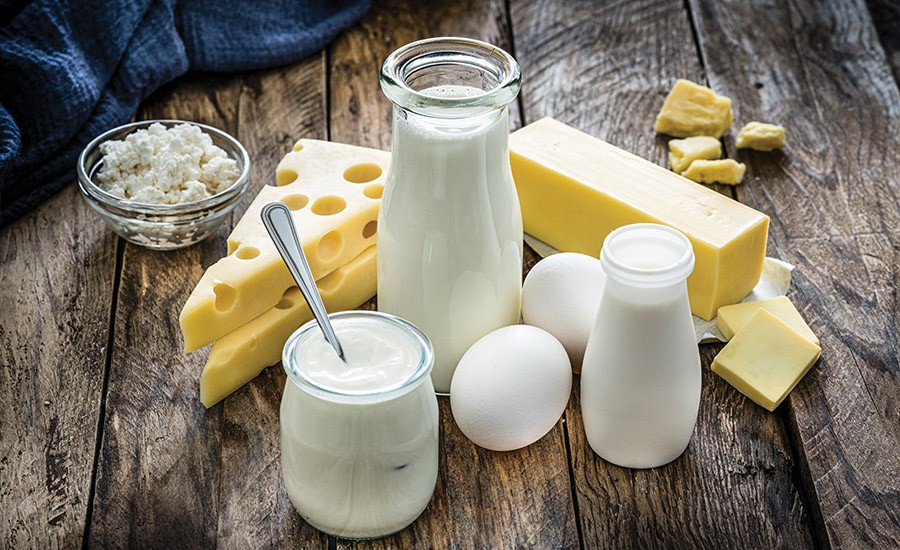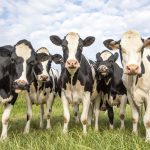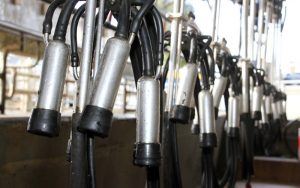
The sector is playing its part in tackling climate change alongside all other sectors and Kiwis, says DairyNZ chief executive Dr Tim Mackle.
The IPCC’s Sixth Assessment Report (AR6) summarises the latest climate change science from around the world. It outlines recommendations including that more must be done to meet the global target of limiting warming to 1.5 degrees Celsius.
The report endorses New Zealand’s split gas approach which recognises the difference between biogenic methane and long-lived gases, and that biogenic methane does not need to be reduced to net zero. It recognises New Zealand showed leadership in its split gas approach.
“New Zealand is world-leading by legislating a split gas target in the Zero Carbon Act. This recognises methane is a short-lived gas and requires a different target to the long-lived carbon dioxide,” says Dr Mackle.
“Farmers are making changes to measure, manage and reduce emissions, including changes to farm practice, as well as adopting new technologies and solutions as they become available.”
DairyNZ, along with other partners, is investing millions in researching options such as a methanogen vaccine and inhibitors, selective breeding of low methane animals, low methane forages, genetics research, reducing nitrous oxide and leaching, and technology uptake.
“Our sector is doing a huge amount of work to support farmers with practice changes too.”
Dairy farmers are leading the way in understanding their emissions profile through Farm Environment Plans – 3400 are complete now and all dairy farmers will have a plan by 2025. Dairy farmers are also extensively planting native trees on farms or through catchment groups, that act to store carbon (sequestration).
“New Zealand’s agricultural emissions have stabilised and improving farming practices see us 25% more emissions efficient at producing dairy compared to 1990,” says Dr Mackle.
“This has been achieved through the hard work, commitment and investment by our farmers. We want to preserve New Zealand dairy farmers’ position as the most sustainable in the world with our pasture-based, high quality, safe and nutritious dairy products.”
The dairy sector is a partner in He Waka Eke Noa (HWEN), a world-first climate change partnership between the primary sector, Government and MÄori, supporting farmers and growers to measure, manage and reduce emissions.
HWEN will include farmers and growers being incentivised to take action through an appropriate pricing mechanism by 2025.
“The dairy sector also wants to work in partnership with the Government to deliver a clear long-term science strategy that will focus our joint efforts and ensure funding is directed to the right places. This must be an urgent priority.”
Dr Mackle says investment in rural digital connectivity is needed to enable farmers to have better reporting and rapid uptake of new technologies to drive down emissions.
“We need access to as many tools as we can to meet this challenge. There are currently significant barriers to getting methane reducing technology in the hands of farmers.
“These include regulatory barriers and lack of research facilities which prevent New Zealand from developing technology that is fit-for-purpose for our pasture-based systems,” says Dr Mackle.
Key facts
New Zealand dairy is responsible for 0.039 percent of total global emissions.
Globally, methane accounts for 17 percent of global warming and biogenic methane from livestock is 7 percent of that. Methane has a much shorter atmospheric lifespan but is more powerful at trapping heat.
CO2 also plays a big role. It accounts for 74 percent of global warming and can stay in the atmosphere for 1000 years. So, it’s important we all work together to reduce all greenhouse gases – agriculture alone won’t deliver without everyone reducing their emissions.
Dairy sector partners are working together under sector strategy Dairy Tomorrow to achieve New Zealand’s target to reduce methane by 10 percent by 2030.
DairyNZ invests into climate change emissions reduction research, mainly through the Pastoral Greenhouse Gas Research Consortium, and works closely with the New Zealand Agricultural Greenhouse Gas Research Centre (NZAGRC) and with MPI.
DairyNZ launched its nationwide Step Change programme in 2019, supporting farmers to reduce emissions and improve water quality – while running successful businesses.

























